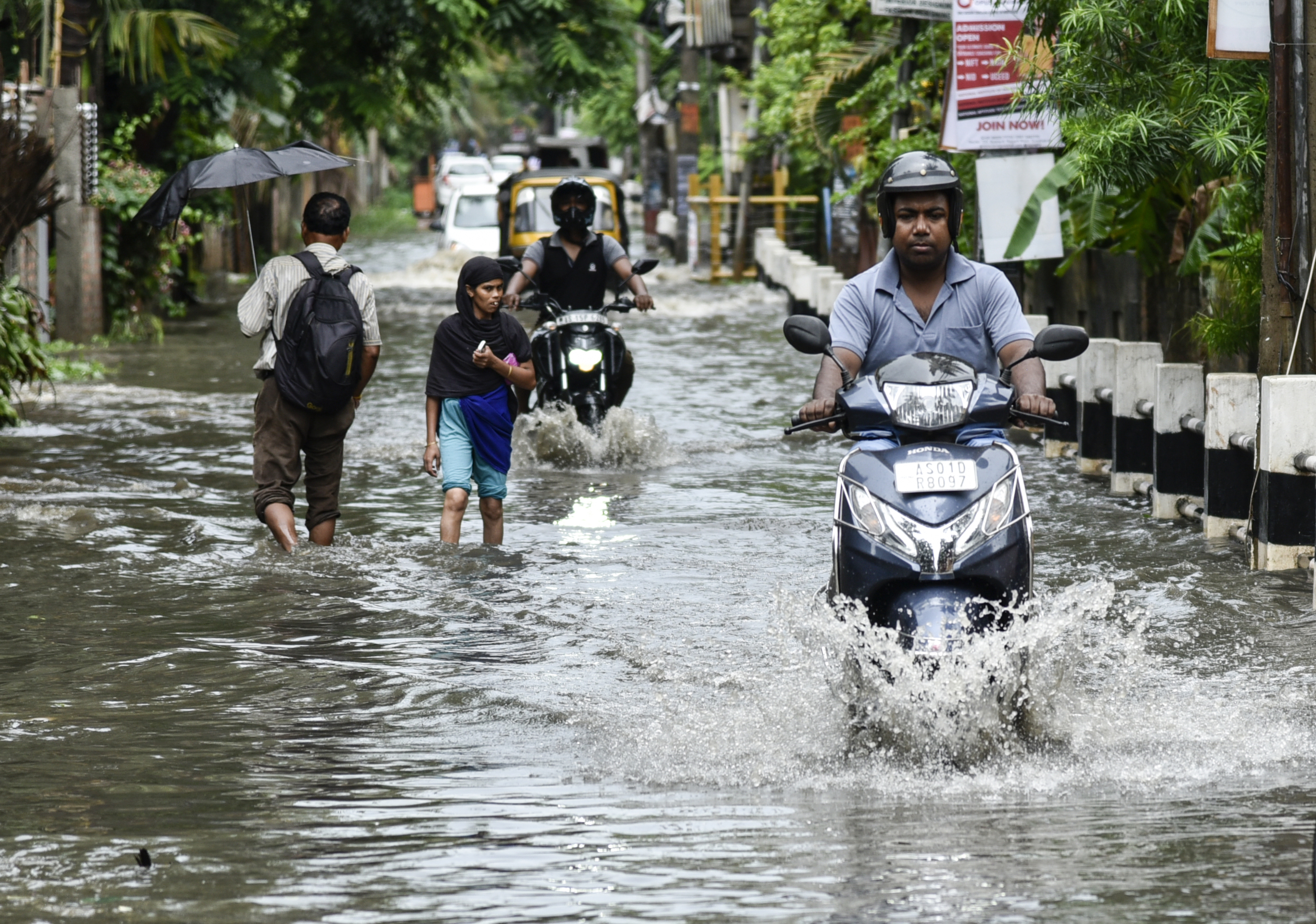Looming 'Climate Apartheid' Could Split the World into the Rich and the Dead, UN Warns

Through droughts, floods, fires and famine, the escalating effects of climate change will touch every single life on Earth in the coming decades, though hardly with equal force. According to a new report from the United Nations Human Rights Council (HRC), the world's poor could be hit so powerfully by the hardships of climate change that the very concept of human rights might break with them.
"Even under the best-case scenario [of reduced carbon emissions], hundreds of millions will face food insecurity, forced migration, disease, and death," Philip Alston, a U.N. human rights and poverty specialist, wrote in the report. "While people in poverty are responsible for just a fraction of global emissions, they will bear the brunt of climate change, and have the least capacity to protect themselves."
Indeed, Alston added, the world may be barreling toward a "climate apartheid," where the wealthy pay to escape the fire and famine of climate change while the rest of the world is left to suffer.
In the new report, published yesterday (June 25) by the HRC, Alston synthesized the findings of more than 100 prior reports and scientific studies to show that climate change poses a direct threat to the basics of food, water, health and housing for hundreds of millions of people around the world, but especially those living in sub-Saharan Africa, South Asia and Latin America. Developing countries will bear an estimated 75% of the costs of climate change, the report noted, despite the poorest half of the global population contributing just 10% of global carbon emissions.
Governments, corporations and even human rights organizations (including the U.N.) have been aware of these climate-related threats for decades, Alston wrote, but have failed to implement policies that could mitigate the likely damage.
"Somber speeches by government officials have not led to meaningful action and too many countries continue taking short-sighted steps in the wrong direction," Alston wrote.
To illustrate this point, Alston cited Brazil's President Jair Bolsonaro, who recently promised to allow mining in the Amazon rainforest (one of the world's single largest carbon offsets), and U.S. President Donald Trump, who "presided over an aggressive rollback of environmental regulations, and is actively silencing and obfuscating climate science," the report said.
Sign up for the Live Science daily newsletter now
Get the world’s most fascinating discoveries delivered straight to your inbox.
While policies like these move the world away from the U.N.'s goal of limiting global warming to 2 degrees Fahrenheit (1.5 degrees Celsius) above preindustrial temperatures, Alston notes several positive developments in the climate fight, including lawsuits against fossil fuel companies and the successful carbon emission reductions in more than 7,000 cities around the world.
Alston thinks this positive pushback is just a start. To avert climate catastrophe, this momentum must be translated into the creation of a global coalition of climate activists fighting for a "deep social and economic transformation," Alston wrote. To truly address the threat of climate change, the world economy needs to "decouple" fossil fuel production from massive profits, and instead focus on a shift to policies that reward sustainability.
The task will not be easy, Alston wrote, but neither is it impossible. The first step, he said, is "a reckoning with the scale of the change that is needed." Radical changes in policy, and the immediate creation of a safety net to help those individuals who will be most harmed by climate change, must follow, he wrote. Giving up on the challenge could not only doom millions to avoidable death, but also shake the world's fundamental beliefs about what it means to take care of one another.
Should the climate be allowed to warm without restriction, "human rights might not survive the coming upheaval," Alston wrote.
- The Reality of Climate Change: 10 Myths Busted
- Understanding the 10 Most Destructive Human Behaviors
- Top 10 Ways to Destroy Earth
Originally published on Live Science.

Brandon is the space/physics editor at Live Science. His writing has appeared in The Washington Post, Reader's Digest, CBS.com, the Richard Dawkins Foundation website and other outlets. He holds a bachelor's degree in creative writing from the University of Arizona, with minors in journalism and media arts. He enjoys writing most about space, geoscience and the mysteries of the universe.










